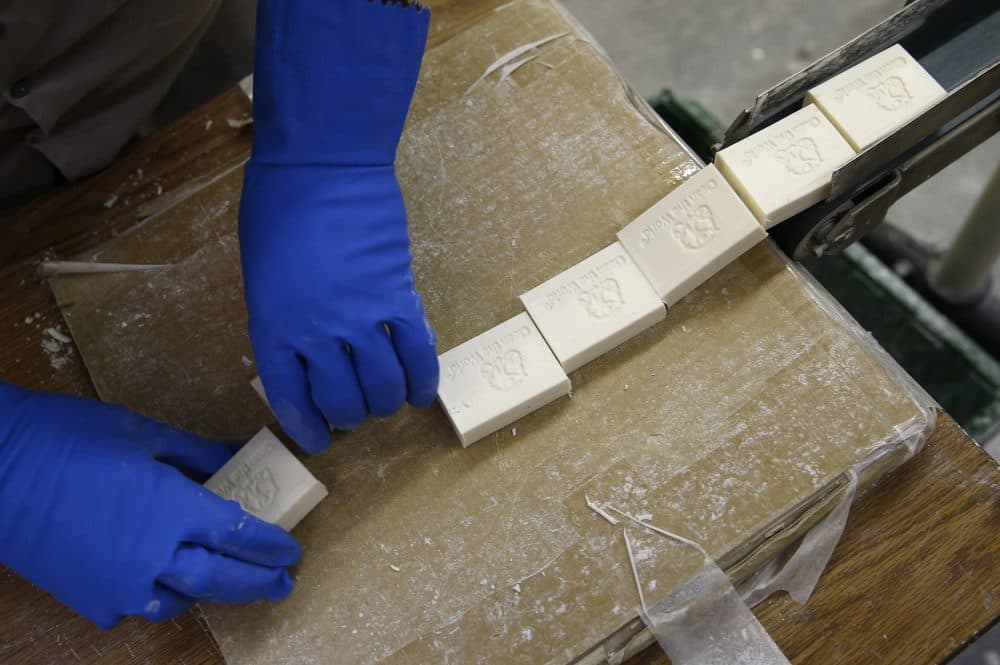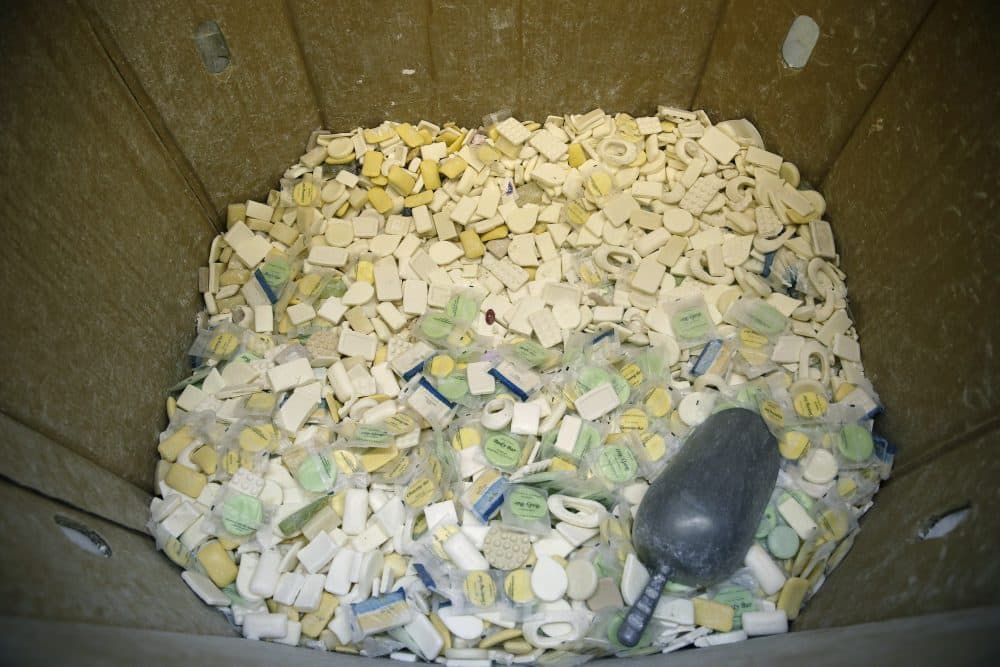Advertisement
How That Hotel Soap You Leave Behind Could Help Save Lives
Resume
When you stay in a hotel, you probably leave behind barely used bars of soap. Instead of wasting that soap, some hotel chains are working with organizations to recycle it.
Clean the World is one not-for-profit company that collects that soap to sanitize, recycle and then distribute to people in developing countries.
Here & Now's Jeremy Hobson talks with Shawn Seipler (@ShawnSeipler), founder and CEO of Clean the World.
Interview Highlights
On where the idea for Clean the World came from
"Well about eight years ago, I was a frequent traveler in hotel rooms — about four nights a week — and one day I called the front desk and I asked what happened to the soap and the bottled amenities when I was done using them, because as a traveler, I never took the little bar of soap and the little bottle of shampoo with me. So the front desk told me that they threw it away, and I thought that was a really interesting answer. I did some research and figured out that at that time, we were throwing away about a million bars of soap every single day out of hotels across the United States, and of course I thought that was a tremendous amount of waste.
"So I conducted further research over the next weeks and figured out a really easy way to recycle soap. But the real kind of 'aha moment' for Clean the World came when I found a bunch of studies that showed that back then, 2009, there were 9,000 children dying every day to pneumonia and diarrheal disease — No. 1 and No. 2 leading cause of death among children worldwide — and all these studies I found show that if we just gave those children soap, and if we taught them how and when to wash their hands, then we could cut those deaths in half. So for me, it was this awesome math opportunity: a million bars of soap being thrown away every day, 9,000 children passing every day, and all I've got to do is figure out how to get the million bars recycled and into their hands. And that's really how we started Clean the World."

On how Clean the World recycles soap from hotels
"We have a hotel recycling program that we offer hotels across the globe. We have about 5,000 now that are running our program, and we provide all the elements they need so that when the housekeepers are cleaning the rooms, instead of throwing away the soap and the bottles, they put them into collection bags, take them down to Clean the World bins. Once those bins fill up, they contact Clean the World, we give them prepaid shipping labels so they can ship those bins in — we actually use UPS's carbon-neutral shipping program.
"And once those bins come into our center, we then take it through the recycling process. So our volunteers will help sort the product, we'll put all the bottles into their right segment — shampoo, conditioner, lotion, body wash — and then the soap will go down a process where we grind it, we run it through a machine that surface cleans it, then we mix it with a sterilization solution and re-manufacture it into a brand new 3-ounce bar of soap."
"For me, it was this awesome math opportunity: a million bars of soap being thrown away every day, 9,000 children passing every day, and all I've got to do is figure out how to get the million bars recycled and into their hands."
Shawn Seipler
On where Clean the World distributes the soap
"We have sent 40 million bars of soap across the United States and to 115 countries globally. So we're working with, here in the United States, primarily those that are on the SNAP program — food stamps — [that's] 42 million Americans. SNAP program, food stamps, does not allow access to hygiene products. So when flu season comes along and everybody's told 'wash your hands,' our underprivileged and undeserved do not have the capability sometimes to purchase those basic hygiene products. So we're getting hygiene kits into domestic homeless shelters, relief organizations, women's shelters. Globally we're going into areas that have high death rates due to diarrheal disease. So that's across Southeast Asia. That's Africa. That's many parts of Latin America. Haiti is one of the big areas. We have a 'Soap in Schools' program, so we get children when they're young, when they're in school, we teach them how to wash their hands. If they demonstrate they can wash their hands, they get to take soap home to the family. We're seeing amazing results in areas where literally we are saving lives because of soap access and soap education."
On how the organization funds its operations
"We're a global social enterprise, so our 501(c)3, Clean the World Foundation, takes in donations. We are also a B [Corporation], B Lab certified B Corp, so when the hotels engage with our program they actually buy our recycling program. So the response from the global hospitality industry to not only implement this program, but also to fund it, to see it as a corporate social responsibility program, a sustainability program, has helped us divert 14 million pounds of waste while sending 40 million bars of soap out to those in need."
This article was originally published on June 09, 2017.
This segment aired on June 9, 2017.